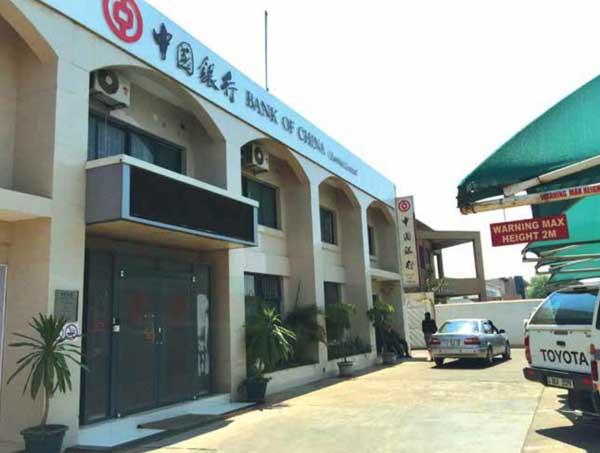Deeper Industrial Cooperation
By Jiang Feifei

more than 100 Chinese and African ministerial officials came to Beijing to attend the Coordinators Meeting of the Implementation of the Follow-up Actions of the Forum on China-Africa Cooperation (FOCAC) Johannesburg Summit in late July. Their main objective was to evaluate, facilitate and review the implementation of the agreements reached during the FOCAC Johannesburg Summit late last year, through multilateral and bilateral cooperation.
The meeting reaffirmed that its top priority remains promoting China-Africa industrial connection and cooperation in the field of production capacity. China-Africa production capacity cooperation is in line with and supports the continents industrialization process, and given the high degree of complementarity between China and Africa in this area, their cooperation prospects are promising. To this end, China and African countries agreed to implement the 10 major China-Africa cooperation plans and the FOCAC Johannesburg Action Plan (2016-18) in an orderly and effective manner.
According to the current situation, China-Africa economic and trade cooperation is expected to move away from “commodity exports” and focus more on “capital exports.” After a decade of rapid development, China-Africa trade has seen, for the first time, a decline in 2015, with a trade volume of $179 billion, down 19.34 percent from 2014. Over the same period, Chinas imports from African countries amounted to $70.366 billion, down 39.24 percent. Chinas decreased demand for raw materials and commodities such as oil and natural gas implies that the focus of China-Africa trade cooperation should be upgraded from “commodity exports”to the more advanced stage of “capital exports.”Similarly, China-Africa trade relationship should be expanded to include industrial cooperation and technology transfer.
Because of the specific external trade structure of many African countries, improving their production capacity should remain the priority of their cooperation with China. Many African countriesexport commodity structure is highly concentrated on primary products such as crude oil, mineral resources and agricultural products. This reflects a severe lack of manufacturing and production capacity, which hampers their industrialization and economic development. Thus, these countries are eager to strengthen and expand their industrial base, in order to export not only low value-added primary commodities, but also diversified high value-added products.
Indeed, in terms of resources and markets, China and African countries complement each other. China exports manufactured goods such as machinery, electronic products and consumer goods to African countries. When it comes to industrial development, their complementarity also extends to industrial capital cooperation. The rapid growth and development of China-Africa trade cooperation has established a friendly relationship characterized by principles of “win-win cooperation” and “common development.”
On one hand, African countries are keen on attracting Chinese direct investment to boost their industrial development. On the other hand, China respects African countries national sovereignty, understands their specific situation and needs, and encourages Chinese companies with strong production capacity to invest on the continent. Both sides have good cooperation prospects in the fields of deep-processed products, equipment manufacturing, electronic information system, food and light industrial products.
Based on the above analysis, China-Africa cooperation should focus on the following aspects of industrial production capacity:
First, we should continue to promote China-Africa economic and trade cooperation zones. China has established economic and trade cooperation zones in Egypt, Ethiopia, Nigeria and Zambia, and has been building various types of industrial parks and special economic zones in several other African countries. China should ensure the zones act as trading platforms between the countries, further improve the policies related to overseas cooperation zones, and increase support to zones that focus on industrial production cooperation. Chinese state-owned enterprises should bring along private partners, and big companies should bring along small ones, with the goal of establishing an industrial cluster featuring a distinctive and complete industrial chain to promote the establishment of deep processing and manufacturing industries in African countries.
Second, we need to help Chinese companies enhance their transnational operations. The Chinese Government should provide guidance and support to Chinese companies going abroad to conduct international cooperation on production capacity with African partners. Information service, policy consulting, and professional training should be provided to these companies. Effective systems of planning and management should be set up to help them identify partners and achieve their cooperation projects smoothly. More consulting services should be provided related to issues of feasibility, trade frictions, investment disputes prevention, and credit risk assessment. More “model projects” should be put in place to serve as examples in the area of production capacity cooperation.
Third, we need to attach more importance to intellectual property protection. In recent years, Chinese companies going abroad have had to deal with an increasing number of intellectual property disputes, most of which reflect their lack of experience in protecting their own rights. During the process of going global, Chinese companies should pay attention to this issue and ensure their hi-tech products are well protected. Relevant government departments should work together to help Chinese companies properly manage their intellectual property rights, ensure patents and trademarks are adequately registered with the appropriate organizations, and nurture legal professionals.

